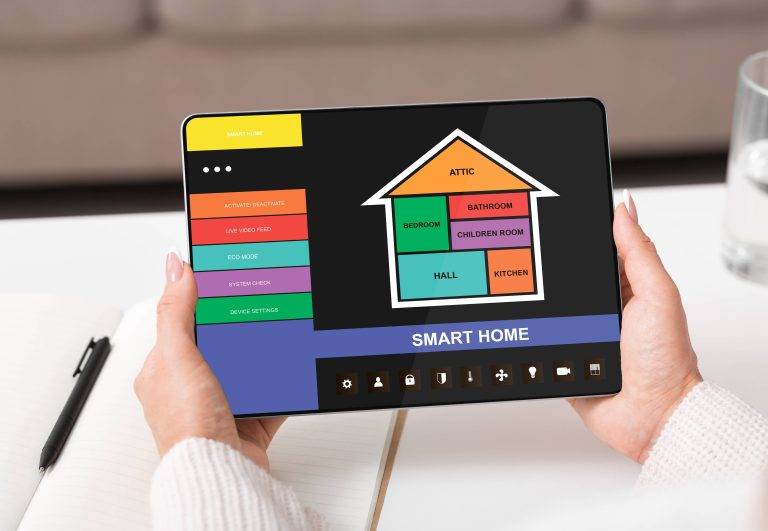
Artificial Intelligence (AI) is increasingly becoming the brain behind smart home technologies. As the world becomes more digitally interconnected, the smart home industry is expanding rapidly, turning science fiction into everyday reality. Let’s explore the future of AI in smart homes and highlight what’s coming next in this transformative arena.
The Current Scenario
As of now, smart homes generally consist of an interconnected web of devices ranging from speakers, lights, and thermostats to cameras and locks. These devices enhance the convenience and efficiency of everyday life. AI plays a pivotal role in this ecosystem, by enabling these devices to learn from user behavior and preferences over time. Thanks to natural language processing (NLP) and machine learning algorithms, smart home devices can understand human instructions and make intelligent decisions.
Personalized User Experience
One of the key advancements in AI is its ability to offer personalized user experiences. Right now, voice assistants like Amazon’s Alexa, Google Assistant, and Apple’s Siri can perform tasks based on preset commands. However, the future will see these assistants becoming more proactive and intuitive. They will not only follow instructions but predict and anticipate needs before being asked. Imagine waking up to a home that adjusts the lighting, heating, and even brewing your coffee based on your routine without you having to lift a finger.
Advanced Security
AI in smart homes is also set to revolutionize home security. Currently, surveillance cameras and smart locks offer standard protection. Yet, the next generation of AI-enhanced security systems will incorporate advanced facial recognition and behavior analysis to identify potential threats. For instance, unusual activity detected by AI algorithms will instantly alert homeowners or even notify authorities. This doesn’t stop at just people; your smart home will be able to differentiate between a stray dog or a suspicious individual lurking around your property.
Voice and Gesture Control
While smart home devices are currently controlled via touchscreens, apps, or simple voice commands, the future points towards more sophisticated voice and gesture control systems. Advances in AI will enable devices to understand nuanced voice commands in multiple languages and dialects with near-perfect accuracy. Moreover, gesture recognition technology will allow homeowners to interact with their devices through simple hand movements or even facial expressions, making smart home control more intuitive and seamless.
Energy Management
AI’s role in energy management within smart homes is considerably promising. Future smart homes will not only optimize the use of electricity but will also be able to autonomously purchase energy when it is cheapest. AI-driven systems will monitor energy usage patterns and adjust devices to consume less power during peak hours while maximizing the efficiency of renewable sources such as solar panels. This will contribute significantly to reducing energy bills and promoting sustainability.
Health Monitoring
Integrating AI for health and wellness monitoring is one of the most exciting prospects. AI could transform ordinary homes into healthcare hubs with devices capable of monitoring vital signs and chronic conditions like diabetes and hypertension. These smart home systems can alert residents to take medication, detect falls, and even call emergency services if necessary. Moreover, the integration of health data with smart home environments can create personalized wellness plans, including diet recommendations and exercise routines.
Interoperability and Integration
The future of AI in smart homes will also see massive improvements in interoperability and integration. Currently, one of the significant barriers to a fully functional smart home is the lack of standardization across devices from different manufacturers. However, industry-wide collaborations and AI will lead to seamless interoperability, allowing devices to communicate effortlessly with one another. This means your smart refrigerator can coordinate with your fitness tracker to suggest meals that align with your health goals. Enhanced integration will foster a more cohesive and interconnected system.
Enhanced Entertainment
AI is redefining home entertainment, too. Beyond merely playing music or controlling your TV via voice commands, future advancements will allow smart homes to create personalized entertainment experiences. AI will suggest movies, shows, and music based on your preferences and viewing habits. Augmented Reality (AR) and Virtual Reality (VR), fueled by AI, are expected to become mainstream in home entertainment, providing immersive experiences like never before. Imagine a home theatre that adjusts lighting, sound, and even room temperature, optimizing for the content you are watching or the game you are playing.
Education and Remote Working
With the rise of remote work and online education, AI will enhance productivity and learning at home. AI-driven smart home systems can create optimal environments for work and study, adjusting ambient conditions to reduce distractions and improve focus. They can schedule breaks and remind occupants to stretch or hydrate, contributing to better health and productivity. Moreover, AI-powered virtual assistants can help answer questions, provide explanations, and assist with research, making learning more efficient and engaging.
What’s Next?
The trajectory of AI in smart homes is undoubtedly exciting. Futuristic possibilities include smart homes that can perform complex tasks autonomously. Picture a home where robots handle household chores, offer companionship, and even provide caregiving services for the elderly. While these ideas might seem far-fetched, ongoing advancements in robotics and AI suggest that such scenarios are closer to reality than we imagine.
Another promising area is the development of emotional AI, where systems can understand, interpret, and respond appropriately to human emotions. This means your smart home might soon be able to sense your mood and offer reconfigurations to match it, such as playing soothing music when you’re stressed or adjusting the lighting to lift your spirits.
Lastly, as AI and smart home technologies continue to evolve, ethical considerations and privacy concerns will become increasingly paramount. Ensuring data security, establishing robust regulatory frameworks, and maintaining transparency will be critical in earning user trust and promoting widespread adoption.
Conclusion
The future of AI in smart homes promises a landscape of unparalleled convenience, efficiency, and personalization. As technology continues to leap forward, smart homes are set to become not just living spaces but intelligent environments that enhance every aspect of human life. From personalized assistance to advanced security and sustainable energy management, the next wave of AI-driven innovation will redefine how we interact with our living spaces. The future is bright, and what comes next in the realm of smart home technology is limited only by our imagination.







